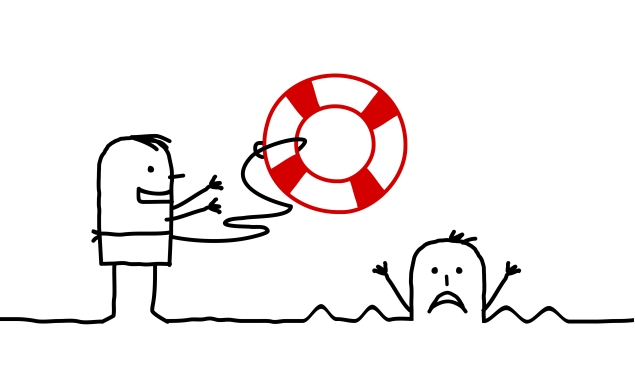OARS: An acronym for relationship-building interviewing skills
In this article, I discuss how using four core interviewing skills can facilitate positive relationships with people in both therapeutic and non-therapeutic settings. Much of my work with clients entails interviewing them. This not only helps me to gather information necessary to understand them and their issues. The way I interview clients also helps me to build effective working relationships with them. It is based on four interviewing skills which can also be helpful in building relationships with people in settings outside of therapy. I will discuss these skills in the following sections...[more]
Words matter: The importance of how you communicate your points verbally in relationship discussions
In this article, I discuss how your choice of words in discussing issues with your partner can significantly affect the likelihood of the discussion being constructive or non-constructive. In discussions of the importance of various factors to communication in relationships, the focus is often on factors other than the words which are spoken. Nonverbal factors such as body language and ‘paraverbal’ factors such as the tone, volume, pitch and cadence of a person’s voice are often considered more important to communication than the verbal content of the communication—that is, the words which comprise the message. While I acknowledge that these factors are important to communication in relationships, I think the focusing on them over the content of the message can lead to the incorrect conclusion that the words which are spoken or written are unimportant. In the following sections, I will discuss the importance of the words people choose to communication in relationships and how choosing the right words can have a significant impact on the quality of relationships...[more]
Test anxiety: How to manage it and benefit from it
In this article, I discuss strategies you can use to manage and benefit from anxiety experienced leading up to and during tests and examinations. Using tests and examinations to assess people’s abilities in a multitude of endeavours is as pervasive today as it was when I was growing up. In my own experience, I have had to perform on tests in elementary school, junior high school, high school as well as in undergraduate and graduate school at university. I had to succeed on both written and oral examinations to become registered as a psychologist. I have also had to take examinations in non-academic endeavours such as karate and piano. Being able to succeed on these various tests and examinations has necessarily meant also being able to manage the anxiety which occurs before and during them. In the following sections, I will discuss various strategies which I have found effective in managing test anxiety for myself and with clients and which you can use in your life...[more]
Do you have high self-esteem? It depends on how you define it
In this article, I discuss the different ways of thinking about the concept of self-esteem and the implications these have for working on this issue in therapy. Few concepts have received as much attention in psychological research and therapy than self-esteem. In popular discourse, it is generally thought that it is beneficial for a person to have ‘high self-esteem’ or ‘good self-esteem’. In helping clients who tell me they would like to improve their self-esteem, I typically have a discussion regarding the meaning of this concept. This includes considering the different ways self-esteem can be thought of and defined. In the following sections, I will delve into these issues...[more]
Dr. Pat featured in Porch.com providing “Expert Advice to Beat the Winter Blues”
I was recently consulted by Porch.com writer, Teresa Siqueira, on advice to beat the winter blues. In the article, Teresa consults with a number of experts and does an excellent job of summarizing their advice to overcome the winter blues.
One good turn deserves another: Benefits of the reciprocity principle
In this article, I discuss how the principle of reciprocity can be used to address various issues in relationships. One of the most robust psychological phenomena is the principle of reciprocity. Simply stated, the principle is that if you behave toward someone in a particular way, the person is likely to respond to you with the same behaviour or a similar behaviour. In other words, they ‘reciprocate’ the behaviour which you displayed toward them. The principle encompasses ‘positive reciprocity’, in which a favourable behaviour is responded to with another favourable behaviour, and ‘negative reciprocity’ in which behaving in an unfavourable manner toward someone elicits an unfavourable behaviour. Examples of positive reciprocity include performing a favour for someone leading to the other person returning the favour and gift-giving by one person leading to the other person giving a gift in response. Negative reciprocity instances include responding to an insult by insulting the other person in retaliation and punishing someone for behaving inappropriately and, in some cases, illegally. A good feature of the reciprocity principle is that it can be used in therapy to help clients make progress on a myriad of relationship issues. I will discuss how this happens in the following sections...[more]
Health anxiety: How to use cognitive and behavioural strategies to address it
Health anxiety: How to use cognitive and behavioural strategies to address it In this article, I discuss how the way a person thinks and behaves can affect the level of anxiety they have which is related to their health. Do have ongoing anxiety about your health even though your family doctor and one or more specialists has determined through extensive examination and testing that there is little to no evidence of health problems? Are you preoccupied with noticing and monitoring various parts of your body as possible signs or symptoms of illnesses or diseases? Do you regularly seek reassurance from people close to you, from information on the internet and from doctors that there is no cause for concern? Does this reassurance-seeking decrease your anxiety briefly only to have it return to the high levels you experienced prior to seeking reassurance? If you answered ‘yes’ to one or more of the preceding questions, then you may be dealing with issues involving health anxiety. Fortunately, there are tried-and-true strategies which you can use to address health anxiety which focus on changing the way you think and the way you behave in relation to your health. I will discuss these strategies in the following sections...[more]
The 1972 Summit Series: A master class in overcoming adversity on and off the ice
In this article, I discuss strategies for overcoming adversity demonstrated by Team Canada in its epic 1972 hockey series versus the Soviet Union. Canadians recently celebrated the fiftieth anniversary of the 1972 Summit Series between a Canadian team comprised of NHL stars (with the notable absence of the injured Bobby Orr) and an opponent made up of supposed amateur players from what was then the Soviet Union. Millions of Canadians like me were riveted by this landmark eight-game sporting spectacle. The series holds extra special memories for me because I was fortunate enough to attend the third of four games in Canada which was held at the since-demolished Winnipeg Arena. I also vividly remember watching the last four games in Moscow from a classroom at St. John Brebeuf School and our teacher warning students to behave or else she would not let us see the action. What was expected by most experts to be an eight-game sweep by Team Canada turned out to be a titanic struggle. After falling behind two games to one with one tie in the first four matchups in Canada, the team found itself in an enormous hole by then losing the first of the next four games in Moscow. This presented the Canadian players and coaches with no choice but to face significant adversity which it had not expected. How did they fare in this endeavour? I will discuss the various strategies they used to mount a herculean comeback. In doing so, I will relate these strategies to situations in which people face adversity in various activities away from the hockey arena...[more]
Is it good to be a perfectionist? It depends on how you define it
In this article, I discuss different meanings of perfectionism and how this influences whether it is beneficial or detrimental to be a perfectionist. Few terms create as much confusion and ambivalence as perfectionism. On many occasions, it is used in a positive manner. Usually, this happens when someone is describing a conscientious worker, athlete or other performer who keeps working hard or practicing until they can perform a task at a high level. Some of the most successful, respected and admired individuals in a variety of domains are referred to as perfectionists. And these same people typically wear the perfectionist label as a badge of honour. In contrast with the flattering portrayal of perfectionism which we often hear in public discourse, the term is often discussed in a negative manner in clinical and counselling psychology. In fact, perfectionism is listed as one of the symptoms of a disorder found in the Diagnostic and Statistical Manual of Mental Disorders (DSM). How do we make sense of these vastly different meanings of the same term? In the following sections I will discuss these different meanings of perfectionism and their implications...[more]
Dealing with computer issues: A chance for this psychologist to use stress management strategies
In this article, I discuss how I dealt with an unexpected significant stressor by using the strategies which I teach to my clients. For the last several years, I have written and posted a blog article every two weeks without interruption. That streak came to an end last Sunday when I did not write or post an article. The reason for my not writing or posting is the focus of this article. On the morning of Thursday, September 8th I realized that the computer which I used to write and post blog articles was not working. This realization and the many events which ensued created significant stress for me. And although I would have preferred that I did not have to face the adversity associated with these events, it gave me an opportunity to apply the strategies for dealing with stress which I teach to my clients. Given that I am now experiencing the relief of having emerged from this challenging series of events by having successfully applied these strategies, I thought it would be both cathartic and educational to discuss how I used these strategies...[more]











